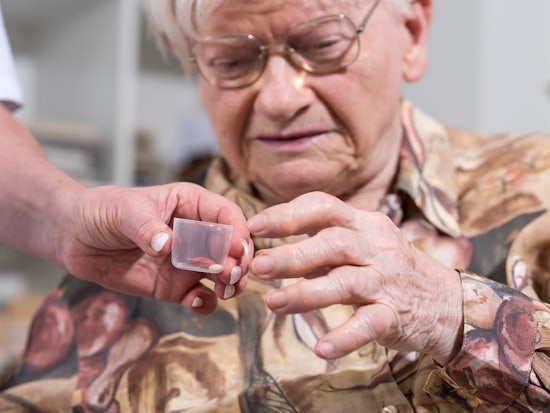Aged care facilities welcome opportunity to “RedUSe” sedative use
Effective intervention through staff education, frequent review and audits of age care home medication use, has the potential to reduce the historical overuse of low benefit, high risk psychotropic medications on residents, according to the latest research to come out of the University of Tasmania.

New research from the University of Tasmania has noted a massive decreases in the prevalence of use in the medications (Source: Shutterstock)
The new research, led by The University of Tasmania’s Dr Juanita Westbury and published in the Medical Journal of Australia (MJA), focuses on the results of the Reducing Use of Sedatives (RedUSe) intervention which was trialled across 150 Australian aged care facilities, and over more than 12,000 residents in six states and the Australian Capital Territory following an initial trial in Tasmania.
As part of the project, the sedative medication use of every residential aged care facility was measured initially, then at both three and six months, with nursing and care staff also attending training sessions on psychotropic medication and the review of residents taking these medicines by nursing staff, pharmacists and their GP.
Dr Westbury says her research initially showed around two-thirds of aged care residents were prescribed psychotropic medications to manage high rates of sleep disturbance, anxiety, depression and the behavioural and psychological symptoms of dementia, with the later stages of research, which introduced the RedUSe intervention, noting massive decreases in the prevalence of use in the medications.
“For at least two decades, concerns have been raised about inappropriate psychotropic prescribing in Australian residential aged care facilities, due to their modest therapeutic benefits and high risks,” she explains.
“These medications aren’t effective in many cases and can lead to many side effects including higher risk of falls, pneumonia and stroke.”
Following the introduction of RedUSe, she says statistics showed a significant reduction in the use of psychotropic medication in aged care facilities.
“Under RedUSe, approximately 40 percent of residents had their antipsychotic or benzodiazepine medication ceased completely or their dosage reduced,” she explains.
“Furthermore, substitution to sedating antidepressants did not occur and the issuing on an ‘as needed’ basis of antipsychotics and benzodiazepines declined significantly.”
Dr Westbury adds that she received an “overwhelmingly positive” response to the project from staff at aged care facilities around the country, and has made the recommendation as part of her research that RedUSe become available to all australian residential aged care facilities in the future and for the program to be offered as part of the Federally funded ‘Quality Use of Medicines’ program for community pharmacists.
The research also recommends the provision of national training for aged care staff to manage behavioural and psychological symptoms of dementia and in alternatives to medication for the treatment of these symptoms.











![The new Aged Care Act exposure draft is slated for release in December of 2023, but advocates hope to see it rolled out on January 1, 2024. [Source: Shutterstock]](https://agedcareguide-assets.imgix.net/news/articles/wp/agedcareact__0811.jpg?fm=pjpg&w=520&format=auto&q=65)












Comments